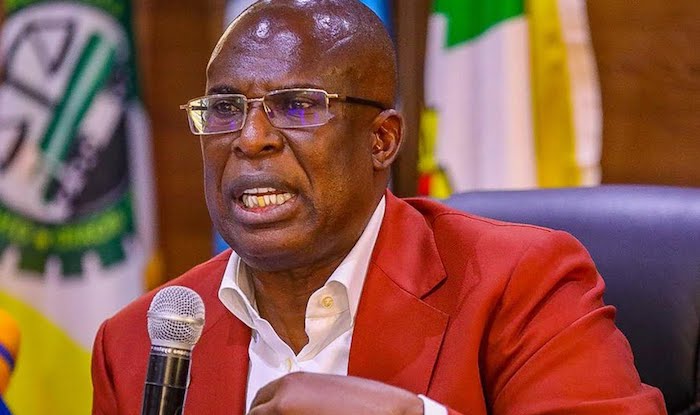According to Nigeria’s government, the pump price of Premium Motor Spirit, or fuel, was not increased above the allowed N165/liter rate.
There has been an increase in the price of the commodity between N175 and N230 per liter based on the place of purchase, according to the government, which claims that oil marketers are to blame.
Petrol prices in Nigeria recently rose over the government-approved N165/litre amount, despite no formal government sanction. Despite the fact that commodity costs were still regulated, this happened.
They said that the N165/litre approved price was unsustainable and had contributed to a lack of petrol in several areas across the country.
As a result, they raised the price of gasoline at the pump and kept it there for several weeks without any protest from the government.
The Minister of State for Petroleum Resources, Chief Timipre Sylva, insisted that the government had not raised the price of PMS during a stakeholders’ consultation forum on midstream and downstream petroleum regulations held by the Nigerian Midstream and Downstream Petroleum Regulatory Authority in Abuja.
“Well, I can tell you authoritatively that we haven’t deregulated,” the minister replied when asked about the discrepancy in gasoline pump pricing and why the government hadn’t intervened.
“The government is still subsidizing, so if the price goes up, it’s usually because of the marketers, not the government.”
Of course, I’ll speak with the head of the NMDPRA to guarantee that prices are in fact regulated. Because we haven’t deregulated, this isn’t from the government.
“Well, I don’t know about monitoring exercise,” Sylva said when asked about the lack of action taken against the marketers and why the government-approved pricing hadn’t been enforced.
I’m confident in the authorities, however, and believe that the lines will thin very quickly.
Farouk Ahmed, NMDPRA’s Chief Executive, explained that the purpose of the forum was to allow stakeholders to engage in the development of laws that affect them, as required by the Petroleum Industry Act.
It is mandated by the PIA to confer with stakeholders “before finalizing any regulations or revisions,” he stated, per Section 216 of the PIA
Our regulatory concept is based on ongoing engagement with our stakeholders in order to support their businesses rather than a duty or a box-ticking activity.”
On the 10 regulations, Ahmed stated that the regulator had already published and received significant feedback on the regulations, including the Petroleum (Transportation and Shipment) Regulations; Assignment and Transfer of Licence and Permit Regulations; and Midstream or Downstream Petroleum (Operations) Regulations.
In addition, there are rules governing petroleum pipelines, gas pricing domestic demand and delivery, natural gas pipeline tariffs, and midstream and downstream abandonment regulations.
Additionally, he designated regulations for midstream and downstream gas infrastructure funds as well as environmental remediation funds as part of the remaining categories.
At the meeting, Ahmed reassured oil industry stakeholders that their views on regulations would be taken seriously, and that the goal was to strengthen the Nigerian oil sector.
